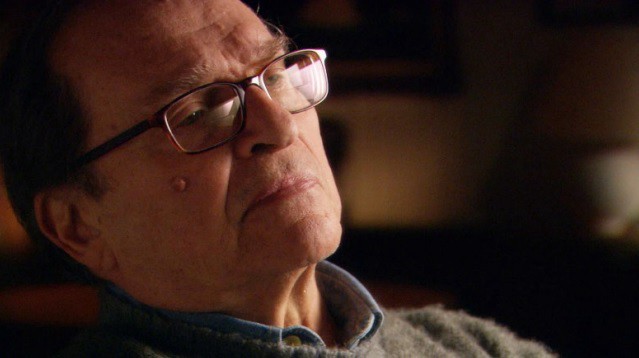Nancy Buirski’s documentary “Afternoon of a Faun” (2013) had its world premiere at the 51st New York Film Festival and international premiere at the 64th Berlinale. She is the director, producer and writer of the Peabody- and Emmy Award-winning “The Loving Story” (2011) (HBO). Buirski founded and was the Director of the Full Frame Documentary Film Festival for 10 years. Prior to her work in film, Buirski was the Foreign Picture Editor at The New York Times, garnering the paper its first Pulitzer Prize in photography. (Press materials)
“By Sidney Lumet” will premiere at the 2016 Tribeca Film Festival on April 22. The film made its world debut at Cannes Film Festival 2015.
W&H: Describe the film for us in your own words.
NB: Sidney Lumet is our narrator, guiding us through his life and work. We discover a simple truth — that themes in an artist’s work emerge, inevitable, and, sometimes unknowingly, from the artist’s life. The proof of this is seen in the many clips we weave organically into the story he tells.
W&H: What drew you to this story?
NB: I was invited to make this film by Michael Kantor at PBS’ “American Masters,” where I had recently shown “Afternoon of a Faun,” a deep study of an artist’s soul. But it was Sidney Lumet’s generosity, candor and humility in an interview made by Daniel Anker in 2008 that inspired me to devote myself to this project.
W&H: What do you want people to think about when they are leaving the theaters?
NB: I want them to think about the Lumet films that last — and why. With a canon of 44 films in 50 years, many are classics and still relevant — “Serpico,” “Network,” “Dog Day Afternoon,” “The Pawnbroker” — impacting us today with their morality and sense of fairness. His first film was “12 Angry Men” and his last was “Before the Devil Knows You’re Dead.” Amazing!
W&H: What was the biggest challenge in making the film?
NB: Daniel Anker recorded close to 18 hours of interview. It became immediately clear that I should represent what most mattered to Mr. Lumet through his own words, without others coming on stage to echo him. But finding a through-line in that many hours was daunting. I wanted to take us on a journey, and structuring this would be the key.
W&H: How did you get your film funded? Share some insights into how you got the film made.
NB: Knowing this would be on “American Masters” attracted seed funding. Sidney Lumet as a subject attracted investors like RatPac — Brett Ratner wanted Lumet’s work to be remembered and came on board quickly. The subject also attracted Steven Spielberg’s Righteous Person’s Foundation along with other Jewish family and public foundations. I was not aware that I would be making a film that would necessarily attract Jewish support, but I learned that this community is enthusiastic about films made about Jewish character and artistry.
W&H: What’s the biggest misconception about you and your work?
NB: That it comes easily. I began this chapter of my life relatively late and have made three documentaries in six years. It was back-breaking work, but work that I love — passion, a love of the form and an urgency to make up for lost time propelled me.
W&H: What’s the best and worst advice you’ve received?
NB: Best: Don’t take no for an answer and brace yourself for many sleepless nights.
Worst: Every story makes a good film. Not true, especially if you don’t have a gut sense of how to tell it.
W&H: What advice do you have for other female directors?
NB: To filmmakers in general — make the story personal. Often that gut sense (see above) will become blindingly apparent. For female directors (see above again) — don’t take no for an answer.
W&H: Name your favorite woman-directed film and why.
NB: Too many to name — and I, honestly, tend not to separate out females from directors in general. We want to be recognized for our work, not for our marginalized status. That doesn’t mean I won’t work tirelessly to make the world a better place for female directors. We must level the playing field once and for all.







